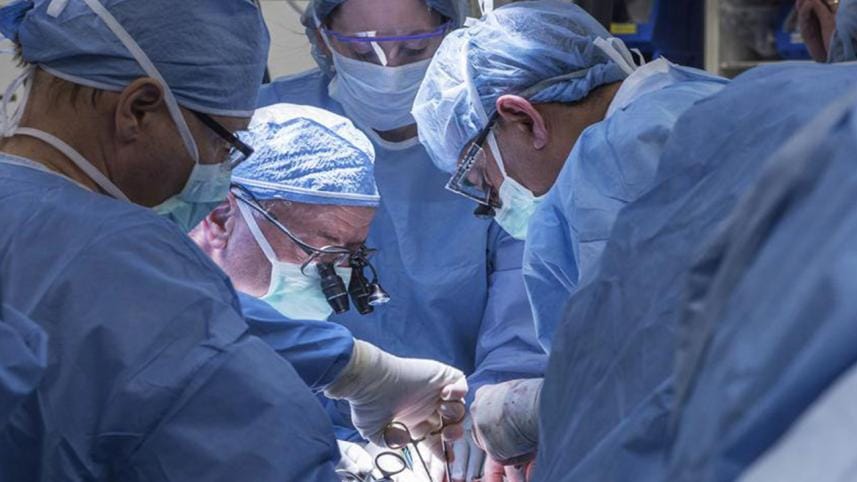First US uterus transplant fails

The first patient in the United States to receive a uterus transplant had to have the organ removed because of complication, the Cleveland Clinic announced Wednesday.
"We are saddened to share that our patient, Lindsey, recently experienced a sudden complication that led to the removal of her transplanted uterus," the hospital said in a statement that did not give the patient's last name.
She was "doing well" and "recovering" after surgery to remove the organ, it added without elaborating.
The transplant, which lasted nine hours, took place on February 25. Doctors announced several days later that the operation had been a success.
On Monday, the surgical team held a news conference during which the 26-year-old recipient briefly appeared smiling.
The hospital said it is reviewing why the transplant failed, adding that its clinical trial -- which aims to carry out uterus transplants in 10 women -- will continue.
"I just wanted to take a moment to express my gratitude towards all of my doctors. They acted very quickly to ensure my health and safety. Unfortunately, I did lose the uterus to complications. However, I am doing okay and appreciate all of your prayers and good thoughts," she said in a statement according to CNN.
She'd spoken earlier this week before she lost the organ.
Doctors at Sweden's University of Gothenburg were the first to successfully perform a uterus transplant in 2013.
The recipient gave birth to the first child to be conceived in an implanted womb in September 2014.
The Swedish team has enabled four healthy births to date.
The transplant is temporary, meant to enable women to deliver up to two children over a five-year period.
The transplanted uterus must then be removed to end exposure to drugs meant to prevent women's bodies from rejecting the transplanted organs.
 For all latest news, follow The Daily Star's Google News channel.
For all latest news, follow The Daily Star's Google News channel.
Comments